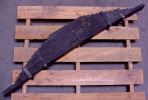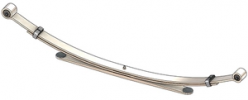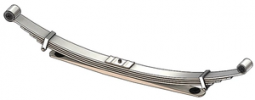silver billet
Spends too much time on here
- Joined
- Apr 18, 2019
- Messages
- 2,982
- Reaction score
- 2,938
- Points
- 113
When I was in the Philippines in 1976 I saw a full grown Carabao (water buffalo) being taken someplace in an old surplus army 1/4T trailer. Wish I had taken a picture. Anyway for you non-army types, the 1/4T trailer had a capacity of, you got it, 1/4 Ton or 500#. A full grown male Carabao goes
500 kg.', so 1,127#. (They hauled them around all the time in those trailers.) Of course nobody paid any attention to gvwr back then on anything.
View attachment 98321Point is, a lot of trucks/trailers can be safely overloaded especially if low speeds and no grades. It's really the rims and tires which will fail first, brakes next especially if going down a steep grade.
There is a difference between "safely towing" and "oh look ma, made it here without killing myself!!"















